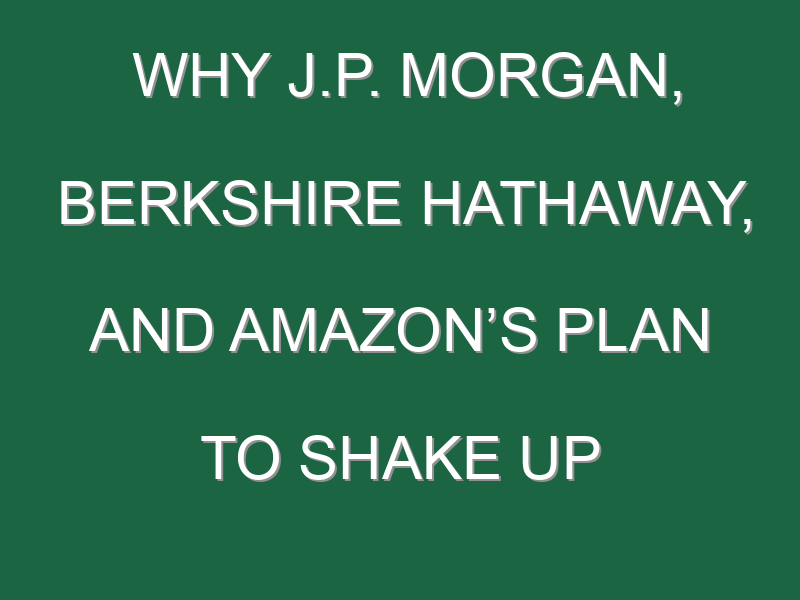When J.P. Morgan, Berkshire Hathaway, and Amazon announced a joint venture aimed at upending healthcare costs in 2018, investors immediately had high expectations.
Insurance company stocks sank in droves on the news, mirroring the shockwave Amazon’s acquisition of Whole Foods sent through grocery stores shares.
But markets aren’t always great predictors for how things pan out. On Monday, the joint venture known as Haven announced plans to shut down after falling short of its ambitions.
It was a lofty goal, and as a result, a terribly difficult one. Part of the reason for Haven’s shuttering appears to be that each of the companies, with their geographically disparate workforces, struggled to pool their resources as different areas required different solutions, per the Wall Street Journal.
And while J.P. Morgan, Amazon, and Berkshire Hathaway all hold significant financial firepower and manpower (with a combined 1.5 million employees)— perhaps it was not the kind necessary for pressuring hospitals to change.
Few seemed surprised that this attempt at revolutionizing the healthcare system and lowering costs from major heavyweights fell apart for Haven. Venrock Partner Bob Kocher and Bryan Roberts explained it like this over the phone late Monday: You can pull a couple of levers to lower the cost of healthcare from an employer perspective. One is by directly negotiating lower costs through hospitals and healthcare providers. But a problem for J.P. Morgan, Amazon, and Berkshire Hathaway is that the majority of their employees are likely healthy and skew young—individuals that are not very lucrative for most healthcare providers. “Hospitals won’t change for the minority and the ones that are not profitable,” says Roberts.
At any rate, each of the companies seem to be carrying on with plans to “collaborate informally” going forward, per a Haven spokesperson to CNBC, with the three firms seeking to split the remaining Haven staff.
And Amazon is still barrelling ahead with separate plans to become a pharmaceutical juggernaut, with its foray into selling prescription drugs. It also acquired PillPack for upward of $750 million in 2019.
CHINA: A lot is happening in China at the moment. Alibaba founder Jack Ma, who recently stepped into the crosshairs of Chinese regulators after criticizing the government for stifling innovation, has not been seen by the public in quite a while—kicking off a spiral of speculations about whether his disappearing act is voluntary or not.
Meanwhile, in an interesting about-face, the New York Stock Exchange said it no longer plans to delist three Chinese telecom companies. Following an executive order from President Trump barring U.S. investments in Chinese firms with ties to the military, the bourse announced at the end of 2020 plans to delist China Mobile, China Telecom, and China Unicom. But in a vague announcement citing “consultation with the relevant regulatory authorities,” the exchange said delisting was no longer necessary on late Monday. In short: Confusion still reigns over how to comply with the executive order. (The NYSE is helmed by CEO Jeffrey Sprecher, who is married to Sen. Kelly Loeffler (R-Ga.).)
Lucinda Shen
Twitter: @shenlucinda
Email: [email protected]





